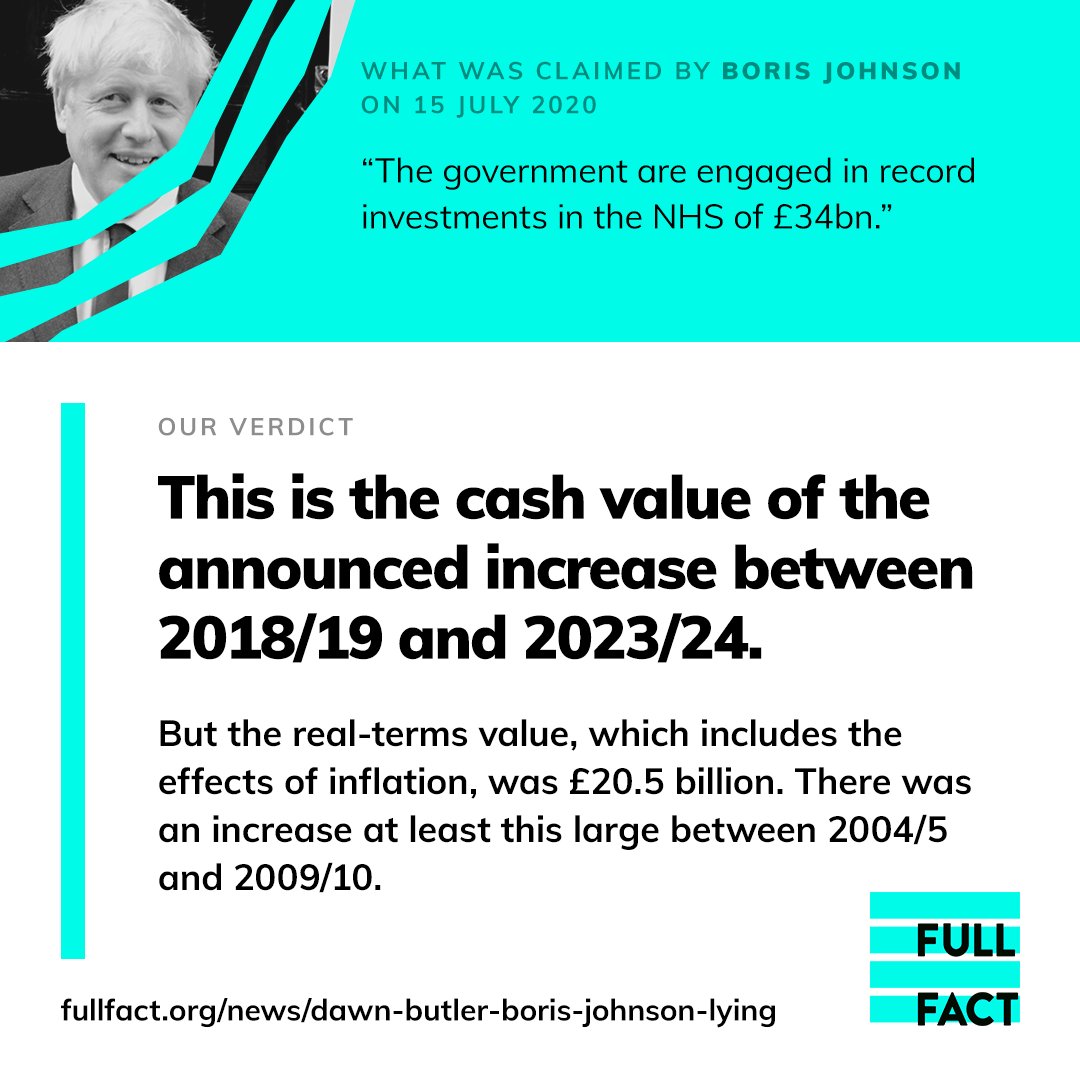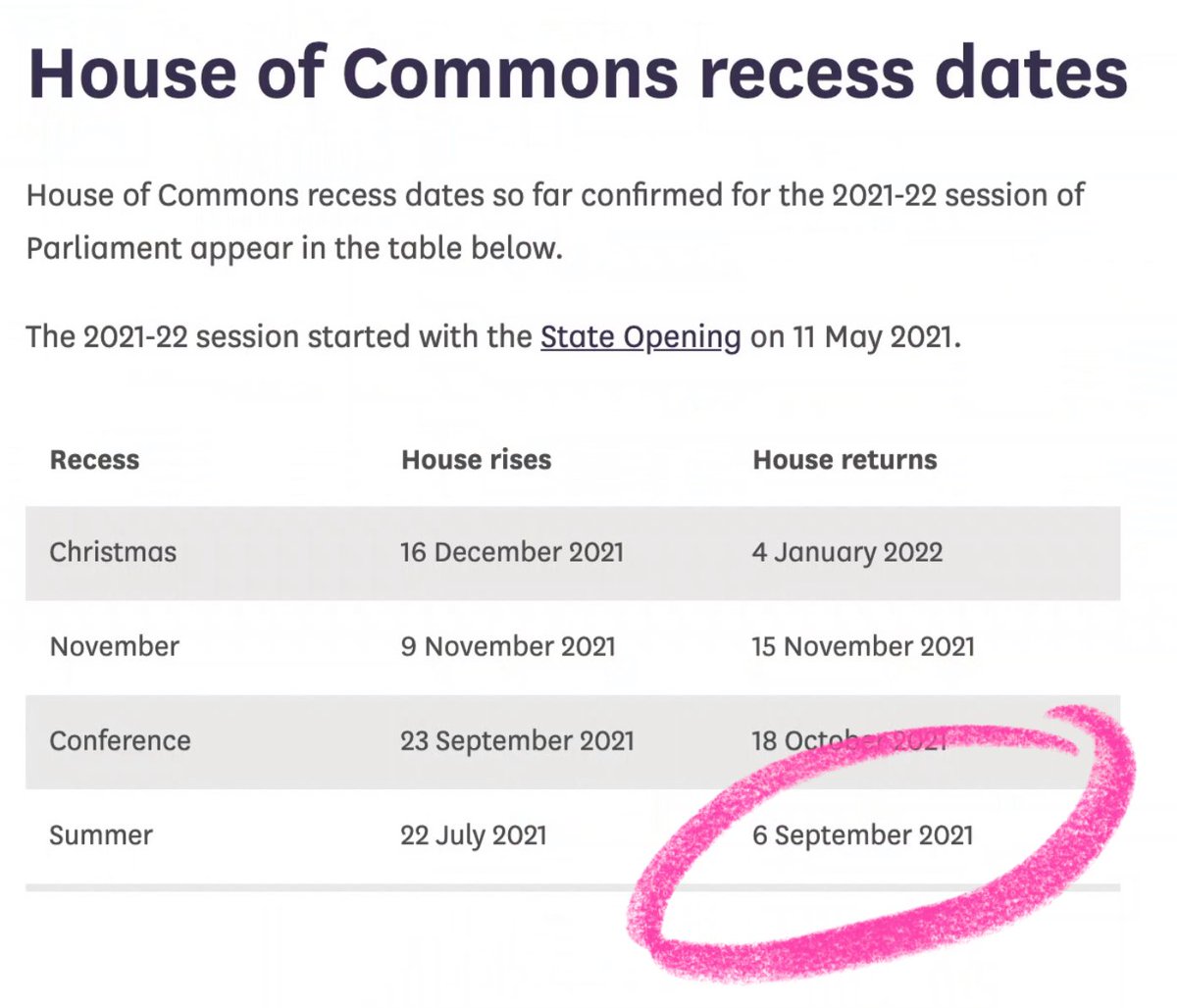Dawn Butler MP accused Boris Johnson of lying yesterday, and was asked to leave the House of Commons.
We do not know if the PM was ‘lying’. But the majority of Mr Johnson’s claims that Ms Butler mentioned were either false or misleading.
Thread 👇
fullfact.org/news/dawn-butl…
We do not know if the PM was ‘lying’. But the majority of Mr Johnson’s claims that Ms Butler mentioned were either false or misleading.
Thread 👇
fullfact.org/news/dawn-butl…
Claim 1️⃣
Ms Butler is correct to say this claim is false.
The 73% figure describes growth since 1990, not since 2010. This means it covers a much longer period that also includes 13 years of Labour government.
Ms Butler is correct to say this claim is false.
The 73% figure describes growth since 1990, not since 2010. This means it covers a much longer period that also includes 13 years of Labour government.

Claim 2️⃣
Mr Johnson’s government has reintroduced a system in which all student nurses receive a non-repayable grant from the government, but it does not pay their tuition fees on their behalf, which was the system when the old bursary applied.
Mr Johnson’s government has reintroduced a system in which all student nurses receive a non-repayable grant from the government, but it does not pay their tuition fees on their behalf, which was the system when the old bursary applied.

Claim 3️⃣
Many countries had launched apps that were operational when the PM was speaking.
However, at the time it was not yet clear whether any of their technological approaches were effective, or whether they’d been downloaded widely enough to reduce the spread of Covid.
Many countries had launched apps that were operational when the PM was speaking.
However, at the time it was not yet clear whether any of their technological approaches were effective, or whether they’d been downloaded widely enough to reduce the spread of Covid.

Claim 4️⃣
This is a misleading way to measure it.
If you account for inflation, which is the fairest way to compare sums of money across time, then the ‘real terms’ value of the spending increase was £20.5 billion - which is not a record.
This is a misleading way to measure it.
If you account for inflation, which is the fairest way to compare sums of money across time, then the ‘real terms’ value of the spending increase was £20.5 billion - which is not a record.

Claim 5️⃣
Vaccination is highly effective against the worst effects of Covid-19, but it is not perfectly effective.
It’s not right to say that the link has been completely “severed” between infection and serious disease or death, although it has certainly been severely weakened.
Vaccination is highly effective against the worst effects of Covid-19, but it is not perfectly effective.
It’s not right to say that the link has been completely “severed” between infection and serious disease or death, although it has certainly been severely weakened.

There are rules about "unparliamentary language".
And there is also the Ministerial Code.
Any Minister that has not given accurate or truthful information to Parliament is obliged to correct this at the earliest opportunity.
We look forward to hearing from the PM on 6 Sep.
And there is also the Ministerial Code.
Any Minister that has not given accurate or truthful information to Parliament is obliged to correct this at the earliest opportunity.
We look forward to hearing from the PM on 6 Sep.

• • •
Missing some Tweet in this thread? You can try to
force a refresh





